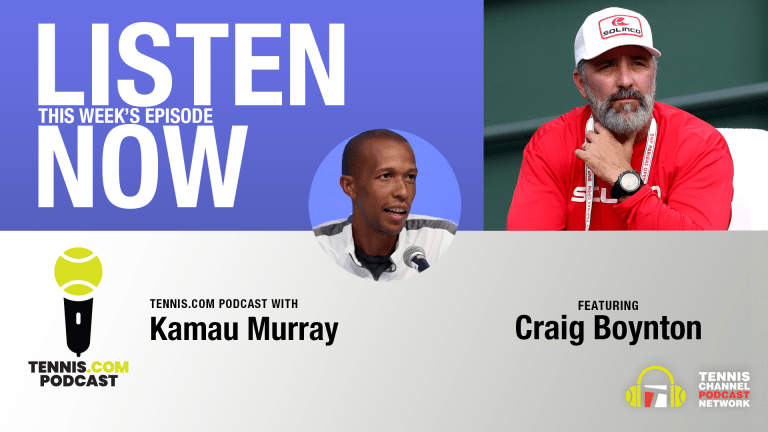The transition from playing to coaching in tennis is rarely a smooth one. A lot of individuals try to get every last drop out of their on-court careers, while others are prefer to dip only a toe in the coaching waters to gauge their true interest and commitment to the new profession. But on this episode of the Tennis.com Podcast, host Kamau Murray chatted with someone molded in a similarly unique way.
Craig Boynton knew much earlier than most that he was destined to be a coach. Playing collegiately at TCU, he realized he was acted better as a teammate than he did as an individual, and he had an enlightenment of sorts.
"I can see someone about to go into a pothole, and be able to maneuver them around it. But I couldn't do that with myself."
